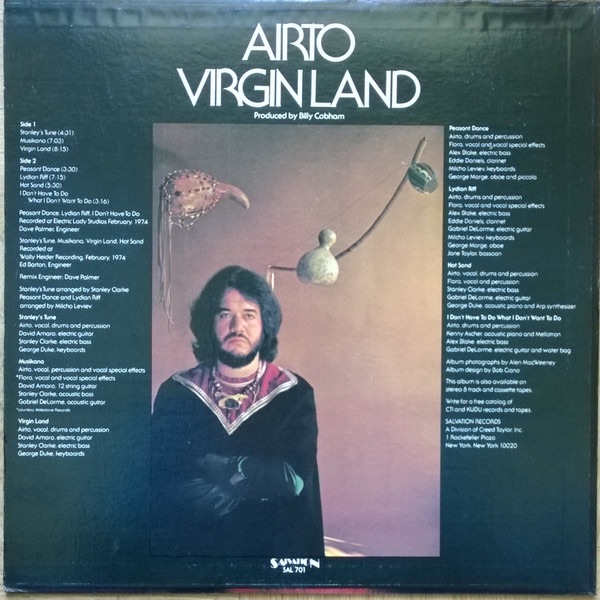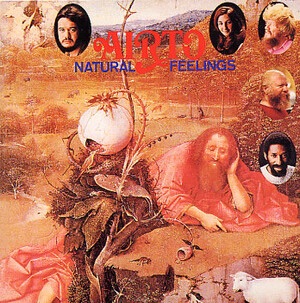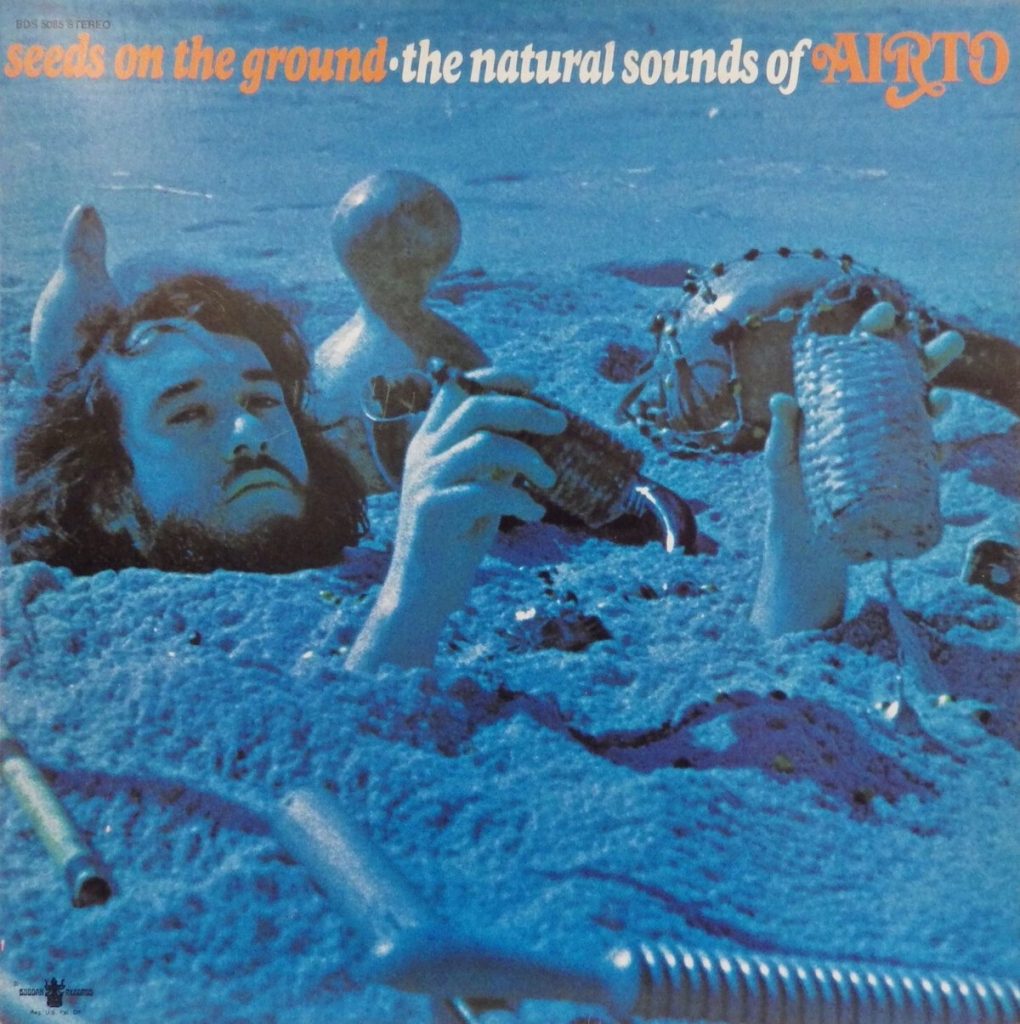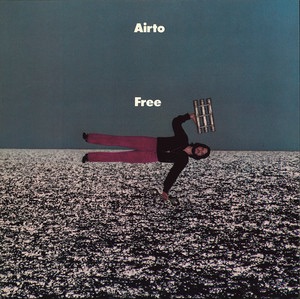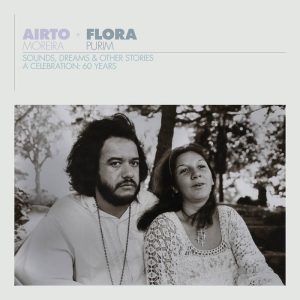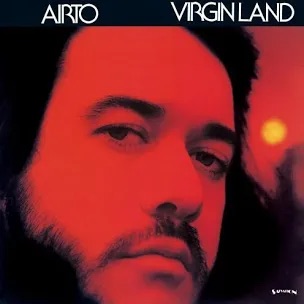

When these two discs first reached me, along with Hermeto Pascoal’s (?), I must admit I was slightly disappointed. The Pascoal album is a bit too whacked out/free jazz for me, in places (read about that disc elsewhere). And these Airto ones were – so I thought at first – a bit manic, and all over the place.
But I’ve been listening to them more, in the car, whilst I’m working. And they’re really growing on me. The sheer talent of the players, and the rather unique blend of Brazilian music, jazz, and the general melting-pot that was jazz rock fusion of ‘70s sounds – esp’ on labels like CTI – adds up to something that’s always interesting, frequently impelling, and occasionally sublime.
Virgin Land kick’s off with ‘Stanley’s Tune‘, named for bassist Stanley Clarke, whose groovy bass riff propels the piece.
Clarke switches to upright bass for the modal jam ‘Musikana’, which also features lots of Airto jungle-noise type vocalising, without him ever singing. Flora Purim also adds her typically higher more ethereal wordless vocalising. Another key sound in this piece is the droning of berimbau, an instrument Airto often uses.
Track three is the title number, which seems to emerge from a foggy or misty jungle soundscape, out of the previous number. Before going into a galloping bass and drum figure, over which Airto and electric guitar sing, in unison, once again wordlessly.
I do love this kind of syncopated propulsive groove. It’s an ideal modal bedrock for jazzy instrumental soloing and exploration. Stanley Clarke goes into a bass part that reminds me of Santana’s Doug Rauch, when Carlos and Co (and Airto worked with them around this time, e.g. on Borboletta!) were at their peak.
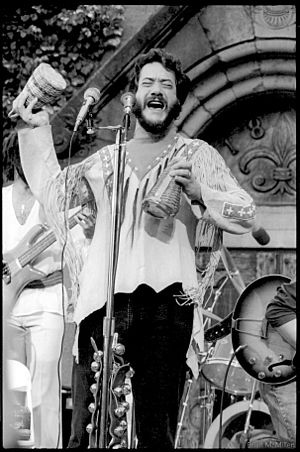
Next up, ‘Peasant Dance’, a real oddity. It certainly is here, but prob’ would be on almost any 1970s jazz fusion type disc. By Bulgarian keys player Milcho Leviev, it’s based around lines that very clearly evoke Eastern European folk melodies, as befits the title.
Despite the eclecticism of this already diverse brand of musical fusion, distinctly Eastern European stuff is still a rarity. Do I actually like it, tho’? I have to say, I do. The combo of trilling chirping melodies, and the unusual voices of clarinet, oboe and piccolo, all over a rather funky background, work surprisingly well. Also, it’s short and sweet, not wearing out it’s welcome.
Next up is the much mellower ‘Lydian Riff’. This follows ‘Peasant Dance’ well, maintaining the slightly skewed – spooky even? – melodic vibes, while transitioning into something sonically more ‘normal’-ish. There are some occasional stabs, which remind me a little of Wayne Shorter’s ‘Eighty One’.
Track six, ‘Hot Sand’ resumes that percolating groove we encountered on ‘Virgin Land’, with wordless vocals again. Only this time we get a section punctuated with stop-start hits. And, as well as an acoustic piano, in the rhythm section, there’s monophonic synth and electric guitar, taking modal solos.
The album closes with ‘I Don’t Have To Do What I Don’t Want To Do’ – a great if rather long or cumbersome title! – which, like ‘Lydian Riff’, after Peasant Dance, slows the tempo down. A compositional collaboration between Airto and guitarist (?) DeLorme, I love what DeLorme brings to the piece, his axe sounding rather berimbau-like at times. And the ‘water bag’ wah-wah like effect, combined with fuzzy distortion!? What a fab sound!
All in all, not Earth-shattering, but very, very good. Definitely worth having and listening to.
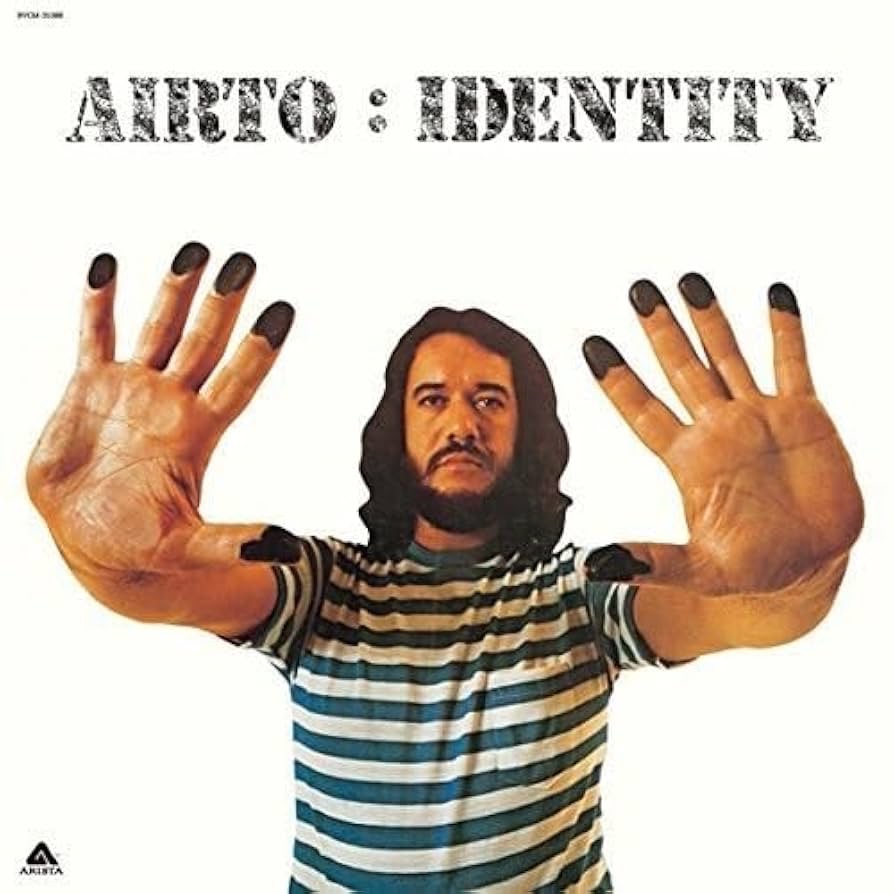

Of the two Airto albums that I’m looking at and listening to here, this is the more ‘straight ahead’, vocally speaking. Inasmuch as there’s singing, and not just of the wordless variety, such as we hear on Virgin Land, but actual sung lyrics.
Blah…
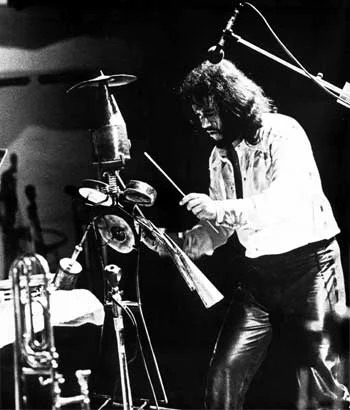
The back cover of Virgin Land, and some other Airto albums I don’t, as yet, have on CD:
